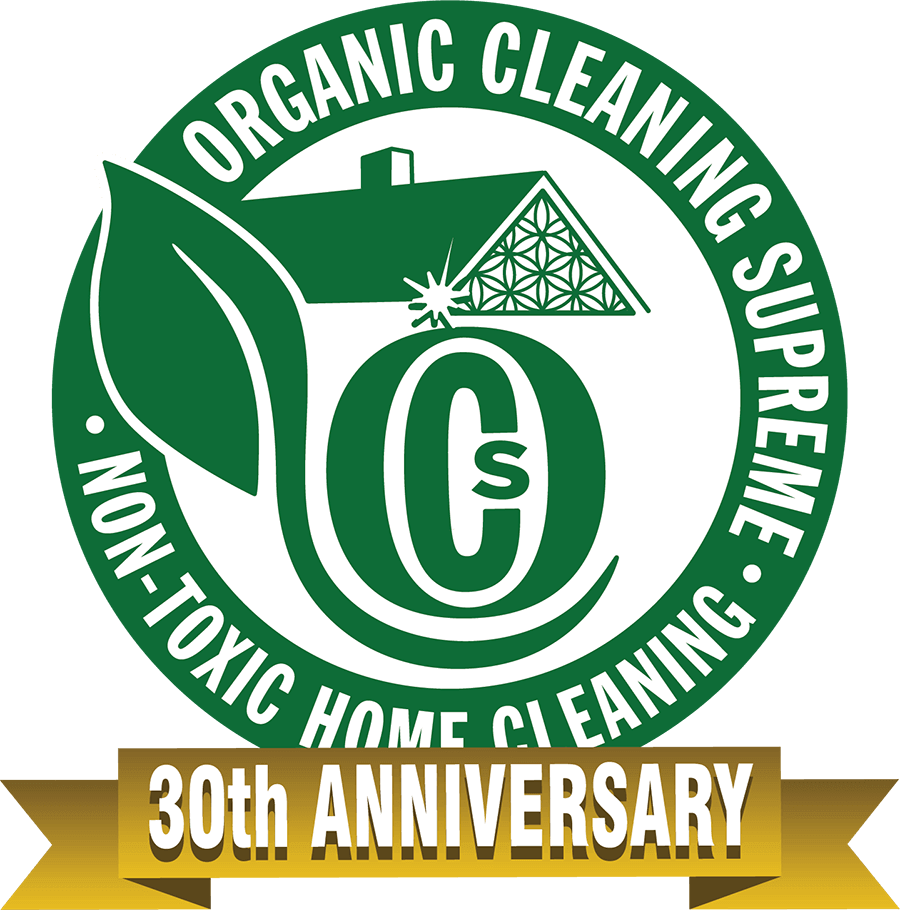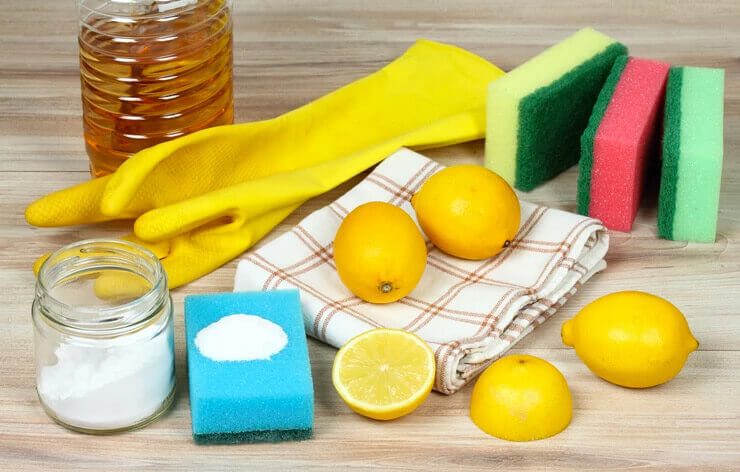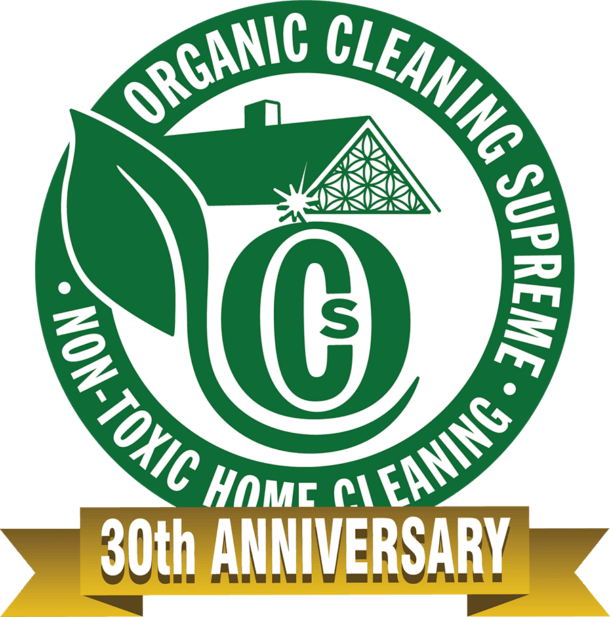Listen to this blog post:
Many of us, but especially pregnant women, are interested in cleaning with fewer toxins. As promised, we’ll start with the substitutions for the toxic chemicals highlighted in our last blog.
What organic substitutions can work in place of more toxic, abrasive products?
Vinegar and newspaper for glass, toothpaste for polishing silver and vodka for metal polish are alternatives to:
Ammonia
This is a chemical found in polishing agents for bathroom fixtures, sinks and jewelry; also, in glass cleaners
2-butoxyethanol
2-butoxyethanol is another main ingredient in many window cleaners.
Baking soda for scrubbing and borax powder with vinegar for laundry is an alternative to:
Chlorine
This is found in toilet bowl cleaners, laundry whiteners, scouring powders and products to remove mildew.
Fresh air – yes, open a window, or consider judicious use of essential oils as an alternative to:
Phthalates
Soaps, air fresheners and even paper products like toilet tissue may contain phthalates found in fragrances.
Vinegar and baking soda – added to your drains. (Let it sit, then follow with boiling water to unclog a drain.) Baking soda, mixed with a small amount of simple dishwashing liquid and a touch of water makes a good oven scrub as alternatives to:
Sodium Hydroxide
Used in drain openers and oven cleaners.
Look for soaps and detergents with simple ingredients, and hand sanitizers with alcohol and without triclosan. If you need a fabric softener, try vinegar.
Triclosan
Antibacterial agents, like triclosan are found in dishwashing liquids, hand soaps and even some fabric softeners.
What about your kitchen sponge?
Now that you know how to avoid the toxic chemicals in many household cleaning products, and you are ready to start cleaning, what about your sponges? Especially the sponge you use for wiping down the counters if you don’t have a dishwasher, or you like washing some dishes by hand.
While there was a flurry of controversy about this spongy topic last year, it is commonly acknowledged that a kitchen sponge is a perfect bacteria hotbed.
Some have recommended that you take your sponge, rinse it in soapy water to remove any food particles, rinse it and place it outdoors in the sun to kill the bacteria.
Others offer different methods. You can run your sponge through the longest dishwasher cycle (use the dry cycle, too) or place it in the microwave. If you choose the microwave, be sure the sponge is wet and don’t remove it immediately after a full-power, one-minute cycle, as it will be very hot. It is also recommended that you throw away your kitchen sponge after about two weeks of use.
Happy Spring cleaning. If all this has made you too tired to grab a sponge, mop or broom, please call us today at (415) 519-7404 to see how we can bring organic green cleaning into your life.


